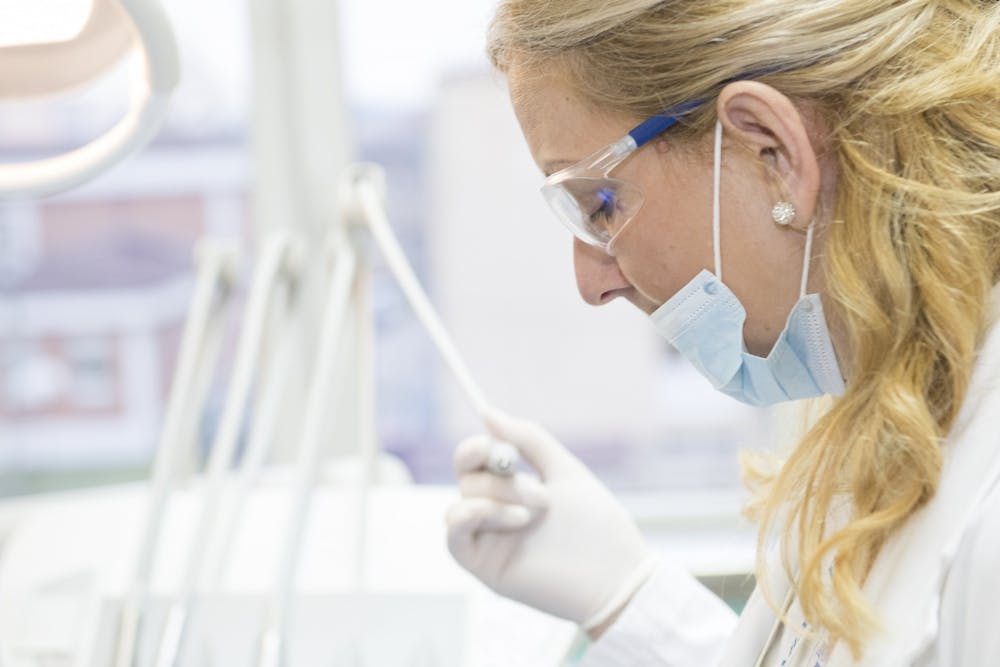
On Tuesday, the World Health Organization officially named the novel coronavirus that originated in Wuhan, China, “COVID-19”, which stands for Coronavirus Disease 2019. From now on, the novel 2019 coronavirus will be referred to as COVID-19.
In order to learn about the status of the coronavirus outbreak around the world, The News-Letter had the opportunity to interview Andrew Pekosz, a professor of Molecular Microbiology and Immunology and Environmental Health and Engineering at the Bloomberg School of Public Health.
Pekosz’s research interests lie with influenza A and other viruses such as SARS-CoV and MERS-CoV. As an expert in coronaviruses and environmental health, Pekosz has the answers to a lot of the questions that the world is asking about coronavirus right now.
The News-Letter: Regarding policy on COVID-19, does the U.S. currently have the epidemic under control?
Andrew Pekosz: The travel screening at airports is an effective measure in that it identifies people that are at higher risks to be transmitted. The proper identification allows health-care officials to give those individuals appropriate advice, such as quarantine or monitoring of their health over time.
N-L: Is the travel ban effective, and what secondary effects might it have?
AP: The travel ban is quite controversial. Although people would naturally imagine it to work, data shows otherwise. The ban might even have some negative effects on the country that is dealing with the epidemic now, which is China. Travel bans limit access to resources, which could potentially help deal with the epidemic.
N-L: Doctors in China are experiencing a lack of protective gear and basic medical supplies. What might be the cause?
AP: Most cities and hospitals only have a few days worth of medical supplies. They rely on daily or weekly replenishments. Any limitations on travel and resource delivery would affect the overall care and ability to deal with the epidemic. With the city lockdown and travel ban within China and around the globe, supplies are not being delivered to the right area at the right rate.
N-L: What are your thoughts on the city of Wuhan being locked down to prevent the spread of COVID-19?
AP: The lockdown of the city where the virus first originated was a measure that had to be taken. However, the question remains, how long will the lockdown continue to be effective? Extreme measures, such as the lockdown of an entire city, historically become less and less efficient as the epidemic festers on for a long period of time and puts pressure onto the medical and social systems. There may come a time when there needs to be a major change in how the epidemic is dealt with.
N-L: Is there perhaps a more appropriate strategy to deal with this epidemic than the current public health measures?
AP: Everything depends on our understanding of how efficiently this virus is spreading from person to person. We can only record its current data and see if strategies from earlier coronavirus outbreaks would help.
There are certainly differences between COVID-19 and other historical coronaviruses in that COVID-19 is more transmissible and has spread to more individuals before some of the public health measures took place. However, it is still a speculation to say that we are experiencing something brand new which requires completely different methods.
N-L: What are your thoughts on the new drug remdesivir?
AP: There are intriguing findings in both animal and laboratory settings. However, the balance of a good drug lies between its potential benefits and the side effects through which it changes the course of what would naturally occur in people. A scenario that should be avoided is when the drug is producing questionable benefits on patients but also resulting in long-term side effects which severely reduce life quality, which was observed in the SARS-CoV outbreak.
N-L: As a respiratory disease, COVID-19 is said to be afraid of hot weather. Is that true?
AP: Current coronaviruses that cause respiratory disease in humans do have a seasonality. Usually, the small aerosoles coughed or sneezed out by the infected patient depend on cold weather and low humidity to remain transmissible and float in the air for a long period of time. However, this is the first time that COVID-19 is occurring in humans. We have yet to figure out exactly how this virus is being transmitted.
N-L: What are your thoughts on the suggestion that COVID-19 is man-made?
AP: This is absolutely not true. From detailed analysis of its RNA, no sequence cannot be explained by natural evolution that we have seen circulating in animal species. The “sequence alignment,” that are said to be the same in other viruses, can also be found in dozens of proteins in the human genome. In addition, the stretches of the “engineered” parts are so small that they are clearly by random chance.
N-L: As Hopkins students living currently unaffected by the outbreak, what should we care about?
AP: Everyone should be aware of COVID-19, and it is always good to keep up with the appropriate news resource. However, influenza has killed 10,000 U.S. citizens this year. It has been a severe season starting early and remaining strong with new strands of influenza taking over the old ones. So the more important thing to focus on in the U.S. is to get the flu shot and donate blood.





